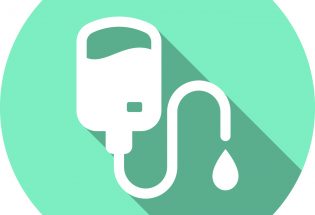Marijuana – expanding options to patients

By Robin Ferruggia
The Surveyor
No matter where they live the world over, people delight in plants, with their kaleidoscope of colors, sensual fragrances, and many shapes and sizes. We are drawn to them, instinctually aware of a deep connection between them and us.
“We evolved together,” said Sharon Montes, M.D.
Montes, a Loveland-based physician who graduated from University of Colorado School of Medicine in 1987, practices integrative medicine, a form of medical practice that considers treating the whole person as important and uses both traditional and alternative treatments. She also uses mind-body medicine, nutrition, acupuncture and Eastern modalities, and does training for medical practitioners and consumers.
“I’ve been doing plant medicine for 30 years,” she said. She is an expert on the use of medical cannabis, a flowering herb indigenous to Asia but grown around the world.
“It has over 400 ingredients that have medicinal effects,” she said. “People have been interacting with cannabis and using it as medicine for thousands of years.”
The many different ingredients in cannabis, and the many varieties of the plant, help make it a versatile form of treatment for many conditions.
Cannabis is also referred to as marijuana or hemp. The difference between them is marijuana has a high level of THC (tetrahydrocannabinol) in it. This is a popular ingredient of recreational marijuana, credited with making people “high.”
“After 30 to 40 years of breeding it, it’s not the marijuana from the ‘70s,” she said. “It can be used for medicine.”
Marijuana is legal in Colorado and several other states, but the legal amount of THC content is limited to 0.3%.
Hemp has a low level of THC and thus is not intoxicating. It contains CBD (cannabidiol) and has over a hundred active ingredients.
“Depending on how its genetics, how it is grown, processed and dosed, hemp can be used as medicine or used to make things like fibers and rope,” she said.
“Based on my experience cannabis improves the options that we can offer our patients.”
In her clinical experience, Montes has found chronic pain is one of the medical conditions most responsive to marijuana.
“Marijuana works better for some conditions because of the THC,” she said. “It has a lot of things working together. When the whole plant is used, the results are better with less side effects. That is true of all cannabis and plant medicine.”
Seniors may be at higher risk of side effects from marijuana treatment, but “elders in general may have increased risk of side effects from anything,” she said. “Humans in general, regardless of age, have variable drug metabolism based on their lifestyle, nutrition and genetics.”
Although many report improvement with medical marijuana treatment, studies done on its effectiveness are not always consistent. Some reasons for that may include inconsistencies in the quality of the plant or dosages used in the study samples. For example, a study in the Sept. 5, 2017, issue of Annals of Internal Medicine suggested the lack of solid evidence regarding the effectiveness of treatment with cannabis for chronic pain and PTSD might be due to the fact results were dependent on dosage. The author, Sachin Patel of Vanderbilt University in Tennessee, indicated a need for more training of physicians in the pros and cons of treatment with medical marijuana.
Doctors often will not prescribe marijuana because they do not have training in its use, said Montes. They may be uncomfortable recommending it because they want to provide care they are confident is safe. They have concerns because they are not sure how marijuana may interact with prescribed drugs.
Thus, they are reluctant to prescribe marijuana.
“There is a problem in the gap between consumers and clinicians,” she said. “Fifty percent of the adults in Colorado use cannabis, but only 3% of doctors prescribe it.”
One of the things that makes Montes as passionate as she is about using cannabis for medical treatment is that “plant medicine, with hundreds of active ingredients, may actually have generally fewer side effects than a “high dose’ of a single medication.
“Doctors worry about the adverse effects of cannabis. We have to be concerned about adverse reactions to prescription drugs.” Adverse reactions to prescription drugs are the fourth-largest cause of death in the United States, according to the U.S. Food and Drug Administration.
“This is a big problem,” she said. “We all need to learn more, and in partnership with the people we care for.”
How to obtain a Colorado Medical Marijuana Card
- To obtain a medical marijuana card, you must have an evaluation done by a doctor who is qualified to recommend the need for a medical marijuana card.
- You must have a state-qualifying condition. The state-qualifying conditions are: cancer, glaucoma, HIV/AIDS, cachexia (severe weight and muscle loss), autism, severe nausea, severe pain, muscle spasms, post traumatic stress disorder, seizures, using cannabis instead of opioids.
- You must have a Colorado State ID or CO Driver’s License to prove your residency.
- You must open an account and register with the Colorado Medical Marijuana Registry. Please go to medicalmarijuana.colorado.gov
- June, 16 2016

Second annual Berthoud Safety Fair th...
By Surveyor Staff The Second Annual Berthoud Safety Fair is scheduled for June 18, from...
- July, 05 2023

Register for Berthoud Family Olympics...
Berthoud’s second annual Family Olympics are set for July 15. Register...
- June, 17 2021

Blood donations at critical level
Vitalant—which supplies donated blood to more than 900 hospitals across the U.S, including more than...
- June, 14 2018

Full agenda for town trustees
Rudy Hemmann The Surveyor The Rose Farm Metropolitan District came before the board again. At...
- October, 21 2021

Colorado’s Haunted Hotels: Book...
Colorado is not short on old hotels and that means it is not short on...
- July, 31 2014

Berthoud’s Creager is a woman o...
By Heidi Kerr-Schlaefer The Surveyor Brandy Mattson and Tami Spaulding presented...

POLICEBLOTTER
Community News
Northern Water sets C-BT quota at 70% for 2024
Community News

Emotions run high during Revere Property hearing
Community News
Snowpack at 119% above normal
Community News

Karspeck to serve third term as Berthoud mayor
Community News

OPINION – No bitchin’ allowed
Community News
Roy Tripi to become principal of BHS on July 1
Community News
COMMUNITY CALENDAR:
Community Calendar – add an event
Homestead Fine Art Gallery First Fridays OPEN HOUSE
03 May 4:00 PM - 7:00 PM
Homestead Fine Art Gallery First Fridays OPEN HOUSE
07 Jun 4:00 PM - 7:00 PM
Homestead Fine Art Gallery First Fridays OPEN HOUSE
05 Jul 4:00 PM - 7:00 PM
Homestead Fine Art Gallery First Fridays OPEN HOUSE
02 Aug 4:00 PM - 7:00 PM
Homestead Fine Art Gallery First Fridays OPEN HOUSE
06 Sep 4:00 PM - 7:00 PM
Homestead Fine Art Gallery First Fridays OPEN HOUSE
04 Oct 4:00 PM - 7:00 PM

